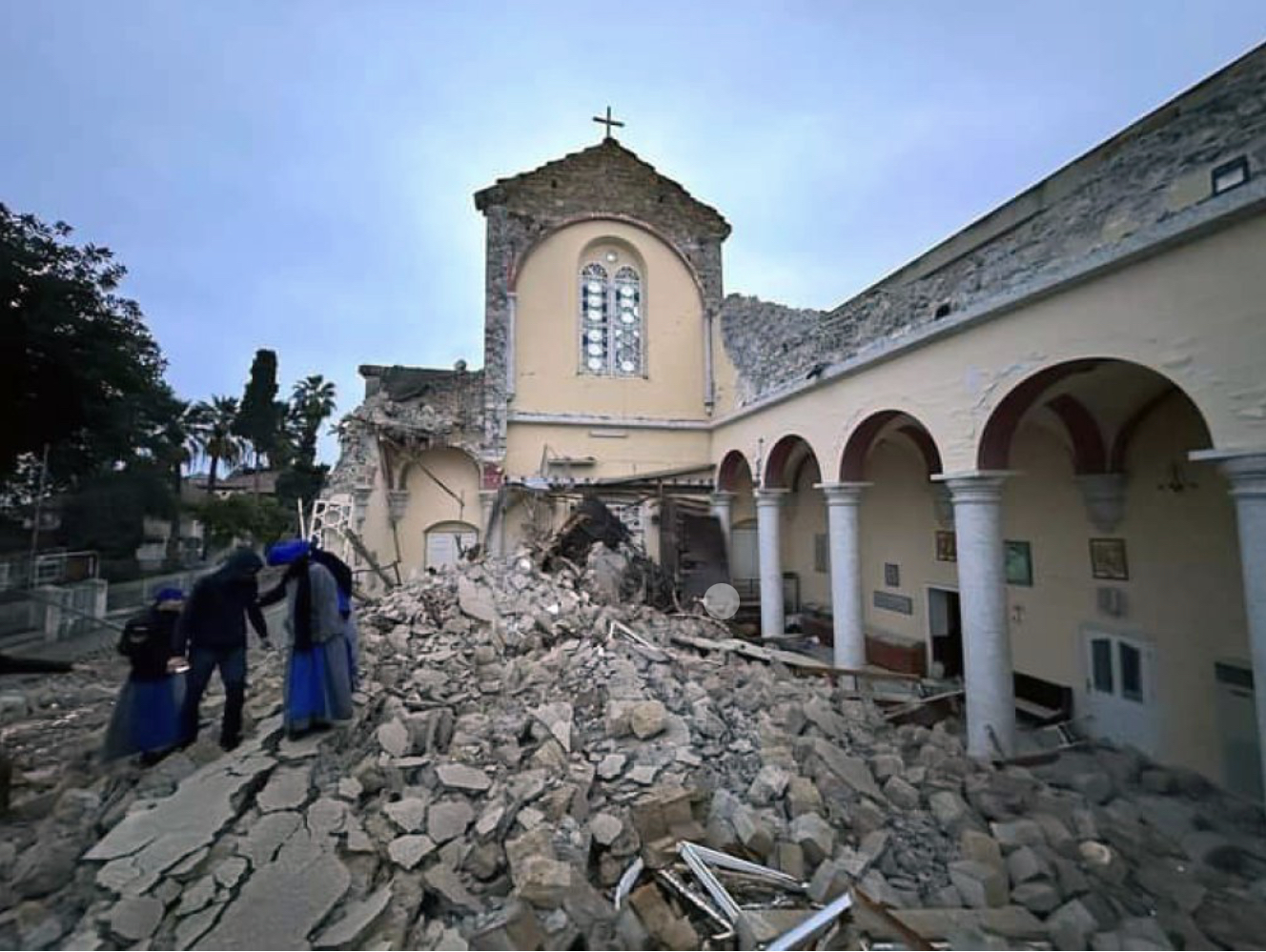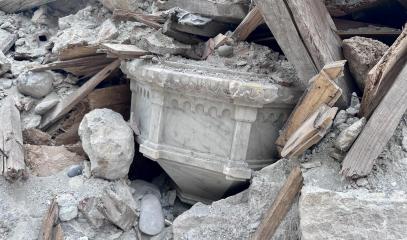Vicar of Anatolia warns that the Christian community is at ‘great risk' after the earthquake
Bishop Bizzeti looks at the wider situation, one of “great desperation" and great need. Only a handful of Christians are left in Antakya (Antioch). Western Churches should urge Western governments and organisations to help maintain the Christian presence in the region. Meanwhile Caritas continues to provide aid and promote long-term activities, including schooling and psychological counselling.
Iskenderun (AsiaNews) – The Christian community “is at great risk” and still reeling from the quake of 6 February. Amid "great desperation”, only a handful of Christians are left in places like Antakya (Antioch), the core of the devastation, this according to Bishop Paolo Bizzeti, vicar of Anatolia.
In Turkey’s quake-ravaged regions, everything has to be rebuilt from scratch – homes, schools, jobs – because, “otherwise, people will leave”. To avoid this, the vicariate met on 13-15 June in Iskenderun (Alexandretta) to discuss the situation and decide what to do in the coming weeks to deal.
“Christians are no different from other minorities,” Bishop Bizzetti said. “They are affected by the same problems like everyone else: housing, jobs, education, daily life, ordinary things. All this will take years to fix. Even today it is hard to say what can be done from the outside to help; the key point is to keep in mind that Christianity’s roots are in these places.’
For the prelate, “Western Churches should pressure on their governments and raise awareness so that they can help and contribute to the Christian presence in the Middle East. I'm talking about serious policies, to put on the agenda."
The 7.7 earthquake remains an open wound in Turkey. The situation is still one of active emergency in 11 large areas in southern and south-eastern Turkey and in northern Syria.
The death toll has topped 50,000 (plus 8,000 in Syria), but the number could still climb. In Adıyaman, two more bodies were found recently during the clearing of a building.
Overall, about 160,000 built-up structures have collapsed or suffered serious damage, while more than two million people are still displaced after four months.
The missing are also another sore point, as highlighted by Tülay Hatimoğulları, an MP with the Green Left Party during question period in parliament.
In the early stage, the Vicariate of Anatolia and Caritas Turkey handed out water, food, blankets, clothes, medicines, detergents, and cleaning materials from the Bishop's Office in Iskenderun, his residence, the streets, and makeshift camps. They also provided tents where children could resume schooling.
Subsequently, the Church gave out tents, tools, camp kitchens, portable showers, containers, canteen utensils, fans, and refrigerators.
In the first three months, basic necessities were handed out to almost 55,000 families, plus psychological counselling, educational support, and medical care for teenagers and adults.
In Hatay, the most affected region, “a large part of the population has been displaced to other cities and is not expecting to return soon. Although many would like to, it is impossible to know when,” Vicar Bizzetti explained.
“In the Antakya region, it is impossible to rebuild for now, so people are planning to stay away from where they used to live. Others have remained, living in tent cities or slums. They need everything, starting with food and fans to cool off, because with the arrival of the hot season, it will be scorching. Keeping food is another problem. Caritas is focusing on this right now.”
An estimated 20 per cent of the local population has remained in the most affected area. The Church has lately tried to provide tools to workers and artisans, so that they can start working again. It has also provided animals – cows, goats, and sheep – to breeders, as well as material to women to knit at home for sale in northern Turkey.
“Providing microcredit is fundamental to buy tools and work material,” Bishop Bizzeti said, but things will take a long time because every step is under government control. In fact, “Nothing can be done without permits" and red tape is worse in an emergency.
It will be tough for school kids and teenagers who previously lost months because of the COVID-19 pandemic. “Educating this generation is going to be pretty shaky – compounded by the pandemic and the trauma of the earthquake. With not enough time and few resources for psychological counselling, it is a constant struggle to survive.”
THE PIME FOUNDATION HAS OPENED A FUNDRAISER IN SUPPORT OF THE INITIATIVES OF THE APOSTOLIC VICARIATE OF ANATOLIA AND THE CUSTODY OF THE HOLY LAND FOR THE VICTIMS OF THE EARTHQUAKE. CLICK HERE TO CONTRIBUTE (IN ITALIAN).
03/04/2023 16:00
13/02/2023 20:37








.png)










